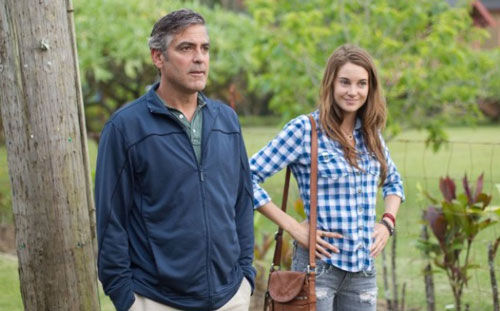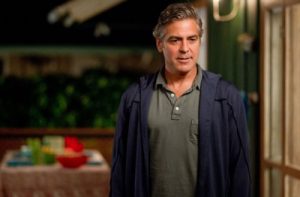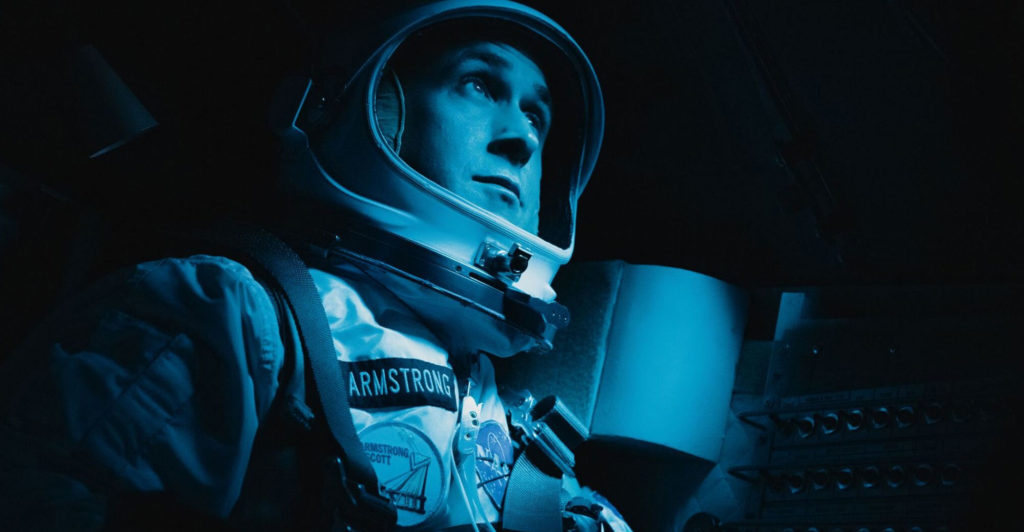
Director Alexander Payne was once the movies’ most acerbic observer of middle-aged masculinity. He has gone soft with his Oscar-baiting drama The Descendants, a slick but manipulative look at the trials a family endures after the mother is injured in a boating accident that puts her in a coma.
George Clooney plays the role of the patriarch, Matt King, who lives on the Hawaiian island of Kauai with his wife and two daughters. As a lawyer and the sole trustee of a family trust that manages a parcel of pristine Hawaiian land, the busy and self-absorbed King has lost his connection to his wife and children.
Seventeen-year-old Alexandra (Shailene Woodley) has a substance abuse problem and a foul mouth, the 10-year old is acting out at school, and it turns out that his wife was having an affair with a realtor in the weeks leading up to her hospitalisation. Naturally, the accident is the catalyst for a lot of soul searching, shown through interminable scenes of a glum-faced George staring into the distance to the strains of mournful Hawaiian music.
The Descendants is one of the major Oscar contenders this year, with five nominations including best actor for Clooney, best director for Payne as director, and best picture. There is a little doubt that it is a high-quality film, but one without the pungency and punch of Payne’s earlier work.
Many of Payne’s films, which include Election, About Schmidt and Sideways, focus on men who are forced to look more closely at their unexamined lives in the wake of personal crises. Unlike the failed novelist and his deadbeat friend in Sideways, or the misanthropic working stiff in About Schmidt, Clooney’s character is successful and born into entitlement.
His family owns property worth hundreds of millions of dollars, passed down the years from the Polynesian princess and missionary worker they descended from. King’s own law firm appears to be prospering. The film is as much about the burdens and responsibilities of privilege as it is about the sour taste of failure.

A family dynasty, a cheating wife on her deathbed, a father in crisis: it takes a script with razor wit and acute psychological insight to make more than mere soap opera of this sort of material. The Descendants trades mostly in clichés and heavy-handed metaphors. “My family seems like an archipelago,” says King in one of his expository voiceovers. “We are part of the same group, but we are still islands — separate and alone.”
King’s voiceovers are a lazy narrative device for a film that seems unsure how to display its characters’ emotions, beyond telegraphing them in the most obvious manner. You only know that King was a detached father and husband because he tells you so repeatedly. He starts the film out as the most likeable and redeemable protagonist in a Payne movie. Paradoxically, that makes him the director’s least sympathetic character because you never feel that he needs to work for resolution of complex and messy emotions.
He is sad because his wife is dying, angry at her betrayal, and then, he is magically better. He is alienated from his daughters, and then he is not. The emotional journey is not believable. The same is true of other characters in the film who are stupid, or wounded, or belligerent one moment, and the exact opposite the next.
The Descendants, based on a novel of the same name by Kaui Hart Hemmings, has a few points in its favour. The cinematography from Phedon Papamichael, who also worked with Payne on Sideways, is lovely. It contrasts the golden sands and lush rainforests of Hawaii with the reality of a worn-in, workaday world far apart from the unspoiled beaches of Magnum PI and tourist travelogues.
The Descendants trailer (via YouTube):
Clooney’s calculated, understated performance is not the equal of Jack Nicholson’s achievement in About Schmidt, but it is wry and convincing. Clooney’s supporting actors are all good, especially Robert Forster as King’s cantankerous and grief-stricken father-in-law. Woodley has a clumsily written character who switches from resentful hellraiser to responsible young women as though someone simply flipped a switch, but she just about pulls it off.
Payne’s films are often described as bittersweet, but he is far freer with the sugar than the angostura in The Descendants. There are moments where Payne’s sharp observational humour shines through, though those are smothered by the film’s surplus of sentimentality. Lacking the acidic aftertaste of Election, the ferocious funniness of About Schmidt or the lingering melancholy of Sideways, The Descendants struggles to elevate itself above maudlin TV drama. — Lance Harris, TechCentral
- Subscribe to our free daily newsletter
- Follow us on Twitter or on Google+ or on Facebook
- Visit our sister website, SportsCentral (still in beta)




